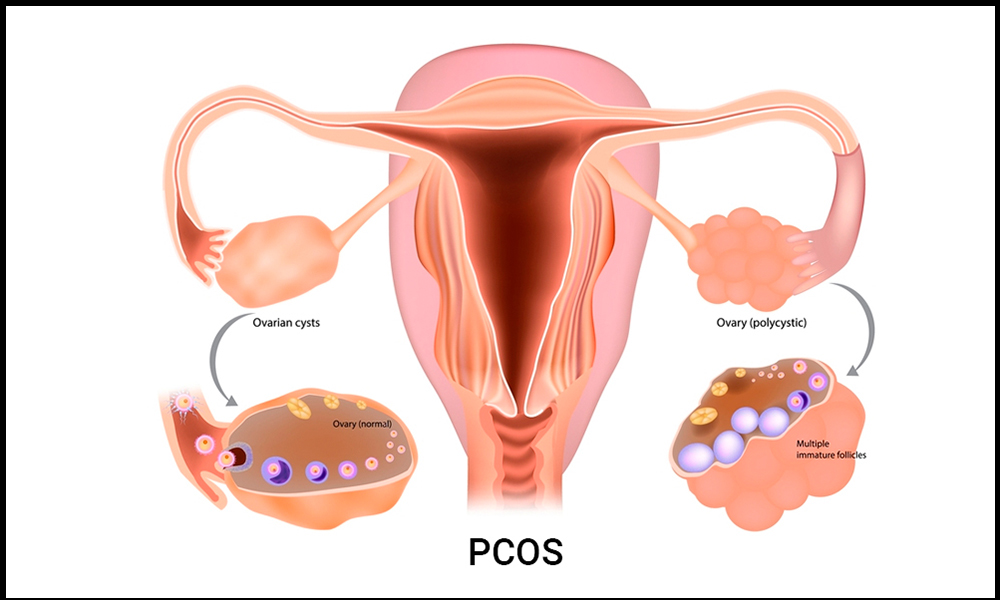-
 Toll Free No 9146-744-744
Toll Free No 9146-744-744 - Appointment
Polycystic Ovary Syndrome (PCOS) or Polycystic Ovary Disorder (PCOD) is a hormonal and metabolic disease caused when a female’s body is not able to complete its monthly ovulation process. The women who are suffering from PCOS usually have 8 menstruation periods in a year. While observing an ultrasound of the lower abdomen, one may be able to observe a series of abnormally large eggs that look like a string of pearls which are immature eggs not enough to be ejected into the hormone level of the body. This ultimately raises the androgen level in the body. These hormones lead to unwanted body hair, weight gain, hair loss, and many other health issues. About 4% to 20% of all women of reproductive age are suffering from PCOD making it difficult for them to conceive a child.

It is a surgical procedure performed to remove cysts from the ovaries that cause discomfort or pain and are suspected to be cancerous.
It is a surgical procedure done to stimulate ovulation in women with PCOS by puncturing the membranes surrounding the ovary with a Laser beam or a surgical needle using minimally invasive laparoscopic procedures.
LAPAROSCOPIC OVARIAN CYSTECTOMY
A minimally invasive procedure performed to remove cysts from ovaries.
Maintain healthy weight Eating healthy diet Exercising regularly Keep a regular check on blood sugar levels, hormone levels, etc.


The most common cause of PCOS/PCOD is severe hormonal imbalance followed by higher levels of insulin.
Yes, having PCOD doesn't mean that you cannot get pregnant. PCOS is common but treatable. In women with PCOD, the hormonal imbalance interferes with the growth and release of eggs from the ovaries (ovulation) which can be cured with proper medications, surgery (if needed), and maintaining a healthy lifestyle.
PCOD/PCOS is liked to other health problems such as diabetes, hypertension, sleep apnea, depression, anxiety, and endometrial cancer.
Treatment of PCOD starts with working on some lifestyle changes. Eating a healthy diet, doing regular exercises, maintaining apt body weight, and getting enough sleep will help improve PCOD symptoms.
When PCOD symptoms and conditions get severe, then surgical intervention is needed to remove the cysts from the ovary. Laparoscopic ovarian cystectomy is the most common procedure recommended by doctors as it is a minimally invasive procedure with a faster recovery time.
Women with PCOD have insulin resistance and are at increased risk of developing diabetes mellitus.
Well, there are several factors for irregular menstrual cycles, and unfortunately, PCOD is one of them.
Yes, all health insurance plans cover the treatment for PCOD. Contact our HospiOne Team for more detailed information.
OUR PROCESS IS EASY contact us for More information.
Copyright © 2023 hospione.com - All Rights Reserved | Developed by Digital Marketing StudioGenix LLP